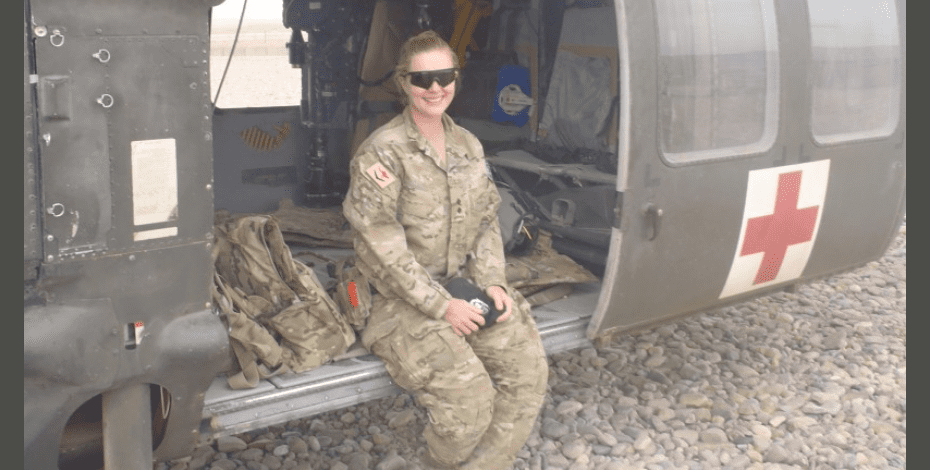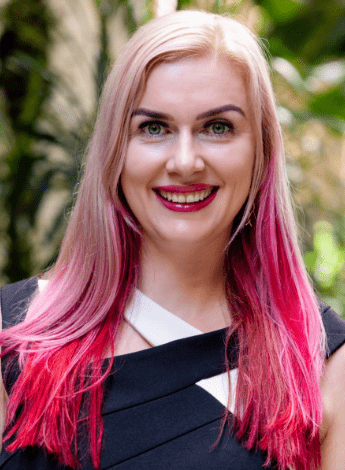
From the army to physiotherapy specialisation

Caitlin Scott has had a varied career, beginning as a physiotherapist in the Australian Defence Force before moving into clinical practice and research.
Caitlin Scott MACP’s career as a physiotherapist has been anything but ordinary.
With a background in the Australian Defence Force (ADF) and a passion for sports and exercise, she has carved out a unique career that has taken her from the battlefield to working in private practice.
With a commitment to ongoing education, Caitlin is keen to extend her knowledge base and challenge her skills to become a Fellow of the Australian College of Physiotherapists.
She started the two-year specialisation training program this year to undertake rigorous education, training and assessment in musculoskeletal physiotherapy.
This follows being credentialed as an APA Sports and Exercise Physiotherapist and an APA Musculoskeletal Physiotherapist.
While the military and medicine have long been part of Caitlin’s life—her dad had a decades-long career in uniform and her mum was an ICU nurse—she initially had no intention of ‘semi’ following in their footsteps.
‘When I was younger, I said I’d never do anything medical and I’d never join the army. Hindsight is an amazing thing,’ she says, adding that her parents have been supportive of her career choices every step of the way.
‘When I was in my first year at university, we had guest presenters from the different fields of physio and there was a physio who was in the ADF.
'I went home to my dad and I said, “Hey, Dad, I’m going to join the Army.”’
Her father’s advice to first join the Army Reserve proved to be a wise decision; it led to Caitlin securing a full-time scholarship
in her final year at James Cook University, Townsville.
Upon graduation she was able to transition directly into the army as a practising physiotherapist.
Caitlin served in the ADF as a uniformed physiotherapist from 2007 to 2019.

Caitlin Scott.
She was deployed on operations to Afghanistan in 2012 and 2013 and participated in international activities including a series in Papua New Guinea.
She has supported multiple sports teams including the Australian Paralympic shooting team, the Australian national shooting team, the Australian team at the first Invictus Games in 2014 and shooting disciplines at the 2018 Commonwealth Games.
She also continued to study, completing a Master of Sports and Exercise Physiotherapy and a Master of Musculoskeletal Physiotherapy at La Trobe University, Melbourne.
She describes her service as a formative and rewarding experience in providing care to soldiers in challenging environments, including warlike service, field environments and health facilities.
‘I am really grateful for the opportunity to serve my country and to be embedded on operations,' Caitlin says.
'It’s an experience that you don’t get anywhere else.
‘I was the sole physiotherapist during my tours of Afghanistan; it involved working seven days a week, not only running a physiotherapy clinic but also supporting the medical team in the resuscitation bays.
'But you’ve got to realise that there was nothing else as a clinician that I was doing.
'We were on a specific base; there was a gym and there was somewhere to eat. That was it.
'So you’d wake up, go to the gym, go to work, go back to the gym and then go to sleep.
'You do that on repeat for six months. But it really was amazing to be embedded and completely immersed in that environment.’
Army life proved to be a crucial factor in developing the skills that have served her well in her current pursuits.
As she explains, ‘I didn’t appreciate until a couple of years after I left the army that the non-clinical skills I learnt during service were transferable to day-to-day life.
'You don’t recognise that as a veteran until you’ve left. There’s a big difference between being a leader and a manager and supporting the training of individuals in the workplace.’
After leaving the ADF in 2019, Caitlin joined a musculoskeletal clinic, Milton Physiotherapy, where she has been able to combine her diverse experiences and passions.
‘While I absolutely loved the experience of working in emergency department and sports environments, over the years I recognised that I truly find value in private practice because it allows you to take someone from the point of injury through to end-stage rehab.
‘I’m lucky to be working in a private practice with Dr Quentin Scott FACP, who has over 25 years of experience as a clinician and is a Specialist Musculoskeletal Physiotherapist (as awarded by the Australian College of Physiotherapists in 2007).
'He has mentored two of his staff through the specialisation training program; it’s something we were talking about quite early on when I started in the practice.
'Initially I said, “Oh no, let me get through my master’s first and then I’ll have a think about it.”
'However, I recognised through working with him that there was value in doing the additional training, challenging my knowledge base and really developing those specialist physiotherapist skill sets.’
Caitlin’s passion for sports and exercise— she runs, lifts weights, shoots and participates in the extreme physical activity of pole dancing—has also played a significant role in her career.
‘Pole dancing is a sport and it’s an art form that combines considerable feats of muscular strength, flexibility, dancing and acrobatics.’
The increasing demand for injury management in pole dancing led Caitlin to investigate the types of injuries that participants were experiencing.
‘Most injuries are shoulder related, which makes sense because the shoulder is turning into a primary weight-bearing structure.
'But what we really wanted to highlight through the systematic review is that if you’re treating pole dancers, they may present with an injury—acute or chronic in nature— to any body part.’
She was the main author on the systematic review ‘Incidence, prevalence and characteristics of injuries in pole dancers’ that was published this year, co-written with Quentin and with Simone Muscat MACP, owner of The Pole Physio and fellow APA Musculoskeletal Physiotherapist and APA Sports and Exercise Physiotherapist.
Caitlin describes her time in the specialisation program as challenging but positive.
She says it offers a clear direction for physiotherapists who want to continue to challenge their skills, which benefits the profession in the long term.
Find out more here or email acp@australian.physio.
The military and medicine have long been part of Caitlin’s life.
© Copyright 2025 by Australian Physiotherapy Association. All rights reserved.





